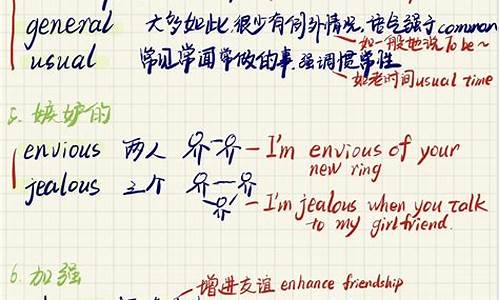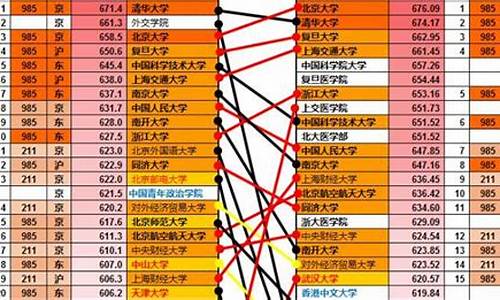您现在的位置是: 首页 > 教育比较 教育比较
2017高考题全国三卷_高考卷三答案2017
tamoadmin 2024-05-14 人已围观
简介许多在眼前看来天大的事,都不是人生一战,而只是人生一站。确实高考备战让你们很辛苦,可是已经坚持了这么久,这就已经是胜利。祝高考成功!下面是我为大家推荐的河北英语高考题2017年,仅供大家参考! 河北英语高考题2017年 第I卷 注意事项: 1.答第I卷前,考生务必将自己的姓名、准考证号填写在答题卡上 2.选出每小题答案后,用2B铅笔把答题卡上对应题目的答案标号涂黑。如需

许多在眼前看来天大的事,都不是人生一战,而只是人生一站。确实高考备战让你们很辛苦,可是已经坚持了这么久,这就已经是胜利。祝高考成功!下面是我为大家推荐的河北英语高考题2017年,仅供大家参考!
河北英语高考题2017年第I卷
注意事项:
1.答第I卷前,考生务必将自己的姓名、准考证号填写在答题卡上
2.选出每小题答案后,用2B铅笔把答题卡上对应题目的答案标号涂黑。如需改动,用橡皮擦干净后,再选涂其他答案标号。不能答在本试卷上,否则无效
第一部分听力(共两节,满分30分)
做题时,先将答案标在试卷上,录音内容结束后,你将有两分钟的时间将试卷上的答案转涂到答题卡上
第一节(共5小题;每小题1.5分,满分7.5分)
听下面5段对话。每段对话后有一个小题,从题中所给的A、B、C三个选项中选出最佳选项,并标在试卷的相应位置。听完每段对话后,你都有10秒钟的时间来回答有关小题和阅读下一小题题。每段对话仅读一遍。
例:How much is the shirt?
A.£19.15. B.£9.18. C.£9.15.
答案是C。
1. Where is Mary?
A. In the classroom. B. In the library. C. On the playground.
2. How much should the man pay for the tickets?
A. $16. B. $12. C. $6
3. Why can?t the woman give the man some help?
A. She is quite busy now.
B. She doesn?t like grammar.
C. She is poor in grammar,too.
4. What happened to Marx?
A. He lost his way.
B. He found his bike missing.
C. He lost his wallet.
5. Why did the man fail to attend the party?
A. He forgot it.
B. He didn?t know about the party.
C. He wasn?t invited to the party.
第二节(共15小题;每小题1.5分,满分22.5分)
听下面5段对话或独白。每段对话或独白后有几个小题,从题中所给的A、B、C三个选项中选出最佳选项,并标在试卷的相应位置。听每段对话或独白前,你将有时间阅读各个小题,每小题5秒钟;听完后,各小题将给出5秒钟的作答时间。每段对话或独白读两遍。
听第6段材料,回答第6、7题。
6. Why must the man drive to work?
A. It is the quickest way.
B. He has to use his car after work.
C. He lives too far from the subway.
7. What?s the relationship between the speakers?
A. Boss and employee.
B. Grandmother and grandson.
C. Teacher and student.
听第7段材料,回答第8~9题。
8. When is Alice?s birthday?
A. Tomorrow. B. The day after tomorrow. C. Today.
9. What will the two speakers buy for Alice?
A. A recorder. B. Some flowers. C. A box of chocolates.
听第8段材料,回答第10~12题。
10. What does the woman do in the group?
A. Play the piano. B. Play the violin. C. Sing for the group.
11. Who is Miss Pearson?
A. Leader of the group.B. Director of the group. C. Teacher of the group.
12. How often does the group meet?
A. Once a week. B. Twice a week. C. Every third week.
听第9段材料,回答第13~16题。
13. Who possibly is the woman?
A. An air hostess. B. A native Indian. C. A travel agent.
14. How long does the trip last?
A. Seven days. B. Eight days. C. Nine days.
15. What will the man probably do at the second stage?
A. Do some shopping. B. Visit the Taj Mabal. C. See wild animals.
16. What will the speakers do next?
A. Say goodbye to each other.B. Find out the price. C. Go to India by air.
听第10段材料,回答第17~20题。
17. In what way does Jack like to travel?
A. With a lot of people.
B. With one or two good friends.
C. All by himself.
18. What does Helen prefer on holiday?
A. Staying at home.
B. Seeing famous places.
C. Enjoying nature quietly.
19. What does Bob like the best about travel?
A. Making more friends. B. Buying what he wants. C. Seeing and learning.
20. Who prefers to do shopping while traveling?
A. Jack. B. Helen. C. Bob.
第二部分阅读理解(共两节,满分40分)
第一节(共15小题;每小题2分,满分30分)
阅读下列短文,从每题所给的四个选项(A、B、C和D)中,选出最佳选项,并在答题卡上将该项涂黑。
A
We have designed all our bank cards to make your life easier.
Using your NatWest Service Card
As a Switch card, it lets you pay for all sorts of goods and services, whenever you see the Switch logo. The money comes straight out of your account, so you can spend as much as you like as long as you have enough money (or an agreed overdraft (透支) to cover it). It is also a cheque guarantee card for up to the amount shown on the card. And it gives you free access to your money from over 31,000 cash machines across the UK.
Using your NatWest Cash Card
You can use your Cash Card as a Solo card to pay for goods and services wherever you see the Solo logo. It can also give you access to your account and your cash from over 31,000 cash machines nationwide. You can spend or withdraw what you have in your account, or as much as your agreed overdraft limit.
Using your cards abroad
You can also use your Service Card and Cash Card when you?re abroad. You can withdraw cash at cash machines and pay for goods and services wherever you see the Cirrus or Maestro logo displayed.
We take a commission charge (手续费) of 2.25% of each cash withdrawal you make (up to£4) and a commission charge of 75 pence every time you use Maestro to pay for goods or services. We also apply a foreign-exchange transaction fee of 2.65%.
Using your NatWest Credit Card
With your credit card you can do the following:
* Pay for goods and services and enjoy up to 56 days? interest-free credit.
* Pay in over 24 million shops worldwide that display the MasterCard or Visa logos.
* Collect one AIR MILE for every£20 of spending that appears on your statement (结算单). (This does not include foreign currency or traveler?s cheques bought, interest and other charges.)
21. If you carry the Service Card or the Cash Card, ________.
A. you can use it to guarantee things as you wish
B. you can draw your money from cash machines conveniently
C. you can spend as much money as you like without a limit
D. you have to pay some extra money when you pay for services in the UK
22. If you withdraw£200 from a cash machine abroad, you will be charged ________.
A. £4 B. £4.5 C. £5.25 D. £5.3
23. Which of the following is TRUE about using your NatWest Credit Card?
A. You have to pay back with interest within 56 days.
B. You can use the card in any shop across the world.
C. You will be charged some interest beyond two months.
D. You will gain one air mile if you spend £20 on traveller?s cheques.
24. The purpose of the passage is to show you how to ________.
A. pay for goods with your cards B. use your cards abroad
C. draw cash with your cards D. play your cards right
B
Once when I was facing a decision that involved high risk, I went to a friend. He looked at me for a moment, and then wrote a sentence containing the best advice I?ve ever had: Be bold and brave ? and mighty (强大的) forces will come to your aid.
Those words made me see clearly that when I had fallen short in the past, it was seldom because I had tried and failed. It was usually because I had let fear of failure stop me from trying at all. On the other hand, whenever I had plunged into deep water, forced by courage or circumstance, I had always been able to swim until I got my feet on the ground again.
Boldness means a decision to bite off more than you can eat. And there is nothing mysterious about the mighty forces. They are potential powers we possess: energy, skill, sound judgment, creative ideas ? even physical strength greater than most of us realize.
Admittedly, those mighty forces are spiritual ones. But they are more important than physical ones. A college classmate of mine, Tim, was an excellent football player, even though he weighed much less than the average player. ?In one game I suddenly found myself confronting a huge player, who had nothing but me between him and our goal line,? said Tim. ?I was so frightened that I closed my eyes and desperately threw myself at that guy like a bullet ? and stopped him cold.?
Boldness ? a willingness to extend yourself to the extreme?is not one that can be acquired overnight. But it can be taught to children and developed in adults. Confidence builds up. Surely, there will be setbacks (挫折) and disappointments in life; boldness in itself is no guarantee of success. But the person who tries to do something and fails is a lot better off than the person who tries to do nothing and succeeds.
So, always try to live a little bit beyond your abilities?and you?ll find your abilities are greater than you ever dreamed.
25. Why was the author sometimes unable to reach his goal in the past?
A. He faced huge risks. B. He lacked mighty forces.
C. Fear prevented him from trying. D. Failure blocked his way to success.
26. What is the implied meaning of the underlined part?
A. Swallow more than you can digest. B. Act slightly above your abilities.
C. Develop more mysterious powers. D. Learn to make creative decisions.
27. What can be learned from Paragraph 5?
A. Confidence grows more rapidly in adults. B. Trying without success is meaningless.
C. Repeated failure creates a better life. D. Boldness can be gained little by little.
C
The wallet is heading for extinction. As a day-to-day essential, it will die off with the generation who read print newspapers. The kind of shopping-where you hand over notes and count out change in return?now happens only in the most minor of our retail encounters,like buying a bar of chocolate or a pint of milk from a corner shop. At the shops where you spend any real money, that money is increasingly abstracted. And this is more and more true, the higher up the scale you go. At the most cutting-edge retail stores?Victoria Beckham on Dover Street, for instance?you don't go and stand at any kind of cash register when you decide to pay. The staff are equipped with iPads to take your payment while you relax on a sofa.
Which is nothing more or less than excellent service, if you have the money. But across society, the abstraction(抽象) of the idea of cash makes me uneasy. Maybe I'm just old-fashioned. But earning money isn't quick or easy for most of us. Isn't it a bit incredible that spending it should happen in half a blink(眨眼)of an eye? Doesn't a wallet?that time-honoured Friday-night feeling of pleasing, promising fatness?represent something that matters?
But I'll leave the economics to the experts. What bothers me about the death of the wallet is the change it represents in our physical environment. Everything about the look and feel of a wallet?the way the fastenings and materials wear and tear and loosen with age, the plastic and paper and gold and silver, and handwritten phone numbers and printed cinema tickets?is the very opposite of what our world is becoming. The opposite of a wallet is a smartphone or an iPad. The rounded edges, cool glass, smooth and unknowable as pebble(鹅卵石). Instead of digging through pieces of paper and peering into corners, we move our fingers left and right. No more counting out coins. Show your wallet, if you still have one. It may not be here much longer.
28. What is happening to the wallet?
A. It is disappearing. B. It is being fattened.
C. It is becoming costly. D. It is changing in style.
29. What makes the author feel uncomfortable nowadays?
A. Saving money is becoming a thing of the past.
B. The pleasing Friday-night feeling is fading.
C. Earning money is getting more difficult.
D. Spending money is so fast and easy.
30. Why does the author choose to write about what's happening to the wallet?
A. It represents a change in the modern world.
B. It has something to do with everybody's life.
C. It marks the end of a time-honoured tradition.
D. It is the concern of contemporary economists.
31. What can we infer from the passage about the author?
A. He is resistant to social changes.
B. He is against technological progress.
C. He feels reluctant to part with the traditional wallet.
D. He feels insecure in the ever-changing modern world.
2017年广西崇左高三语文模拟试卷参考答案 第Ⅰ卷(阅读题,共70分)
7.(10分)翻译:
(1)(5分)正值前骁卫将军王守恩在家服丧,张从恩就把后事委托给他,逃走了。(?会?委?遁?各1分,句意信达2分)
(2)(5分)杀掉契丹使者而推举王守恩,是为国家社稷着想。现在如果害了他人,自己取得好处,不是我本来的心愿?(?盖?计?宿心?各1分,句意信达2分)
8.(5分)?数?说明数量之少,已不再是当年成林成片的样子;(1分)?残?写出了杨柳残败不堪,已不再是当年郁郁葱葱、浓阴蔽日的样子。(1分)?数?残?从数量和状态两方面,(1分)写出了隋宫外面的杨柳残败的样子,(1分)从而映衬出隋宫的破败、倾圮、荒芜的景象。(1分)(答得不全酌情扣分)
9.(6分)第一首诗中作者极力渲染隋宫外杨柳残败衰颓的样子,借以衬托隋宫的破败,以哀景写哀情;(2分)而第二首诗中,作者极写宫树的郁葱茂盛、景色迷人,以宫树的葱郁茂盛来表现隋宫的破败荒
芜,以乐景写哀情。(2分)这两首诗都用了借景抒情的表现手法,同样是写树,虽一残败衰败,一
葱郁茂盛,但都渲染了隋宫的破败荒芜,表达了作者心中的兴衰之叹。(2分)
10.(每空1分,共6分)
(1)众女嫉余之蛾眉兮 谣诼谓余以善*
(2)后人哀之而不鉴之 亦使后人而复哀后人也
(3)人不寐 将军白发征夫泪
11.(25分)
(1)(5分)E D (答E给3分,答D给2分,答A给1分,答B、C不给分。回答三项或三项以上,不给分。)
解析A项中?表明?我?有点神经质?错。B项中?大胡子?救了?我?是为了向?我?宣泄大衣被水冲走的不满?错。C项中?我?的忏悔语义过重,应当是?自责?;?埋下伏笔?应改为?作了铺垫?。
(2)(6分)①大衣被水冲跑是误会加深的结果,推动了小说情节的发展;②为下文?我?的灵魂得到净化并为?大胡子?的妻子免费做手术作了铺垫;③激发读者的阅读兴趣。(每答出一点给2分,意思答对即可)
观点二:小说主人公是?我?。理由:①从情节结构看:?我?到青石镇给患者做手术,途中乘坐人力三轮车产生误会,?我?在逃跑途中遇险,?我?在医院手术室休息时得知真相,?我?免费为?大胡子?的妻子做手术。这些都是围绕?我?展开的。②从主题看:本文表现的是人性的善良与自我反思精神的可贵,这一点正是通过?我?的免费手术体现的。③从人物关系看:在?我?和?大胡子?两人的对比中,突出了?我?人性的弱点,深化了主题。(观点明确2分,分析合理、充分6分)
12.(25分)
(1)(5分)E D (答E给3分,答D给2分,答A给1分,答B、C不给分。回答三项或三项以上,不给分)
解析A项中?已有无人替代的地位?分析偏离原文相关语句的意旨,原文是说当时兵荒马乱,堪用之人不多。B项中?原本志在?概括不当。 C项中?最初下令种树,是为了?没有想到分析有误。
(2)(6分)①以此引出传主,能给人鲜明突出的印象;②诗意地评价左公当年种树的深远影响和巨大意义,寄寓作者无限崇敬之情;③设置悬念,吸引读者,关注后文,从而引导读者深刻把握文章的主旨。(每答出一点给2分,意思答对即可)
(3)(6分)①选准树种,因地制宜种植;②宣传种树意义,颁布护林措施,并严格执行;③种树是他巡视地方的必选对象,从而引领出一种种树护林的良好风气。(每答出一点给2分,意思答对即可)
(4)(8分)①科举受阻,转而研究农桑水利等实用之学,让他获得一种观照外物的特殊视角;②早年在江南生活,那里的生态环境给他留下深刻的印象,而x疆荒凉荒寒荒漠化的环境,与其形成巨大反差,刺激他产生改变环境的愿望;③他种树是真有兴趣,真去研究,躬身参与,强力推行;④他作为一个政治家,是非常有远见的,正是这种远见,让他的作为具有深远而积极的影响。(每答出一点给2分,意思答对即可)
第Ⅱ卷 (表达题,共80分)
13.(3分)B 解析指日可待:为期不远,不久就可以实现。
倚马可待:倚在即将出发的战马前起草文件,可以等着完稿。比喻文章写得快。
拭目以待:拭,擦;待,等待。擦亮眼睛等待着。形容期望或等待某件事情的实现。注意三个成语各自的搭配对象。
14.(3分)B 解析A.句式杂糅,删去?顺利回国?; C.语序不当,?将在2020年计划?应改为?计划将在2020年?;D.防止?与?免遭?否定不当,?免遭?应改为?遭到?或?受到?。
15.(3分)D
16.(5分) ①一是文化的教养;②二是社会的担当;③三是自由的灵魂。(意思合理即可。写出一句给1分,写出两句给3分,写出三句给5分)
17.(6分)构图要素:一双伸开的手掌捧着一颗长出枝叶的心脏,一只手掌的大拇指上站着一只小鸟,小鸟望向初生的枝条。(3分,每点1分)
寓意:小心呵护,让心灵焕发生机,给人以新的希望。(3分,?呵护?生机?希望?每个关键词1分)
猜你喜欢:
1. 2017语文高考调研卷及答案
2. 2017北京高考语文试题及答案百度文库
3. 2017高考语文真题及答案
4. 2017年甘肃高考试题语文答案解析
5. 2017高考语文试题及答案









